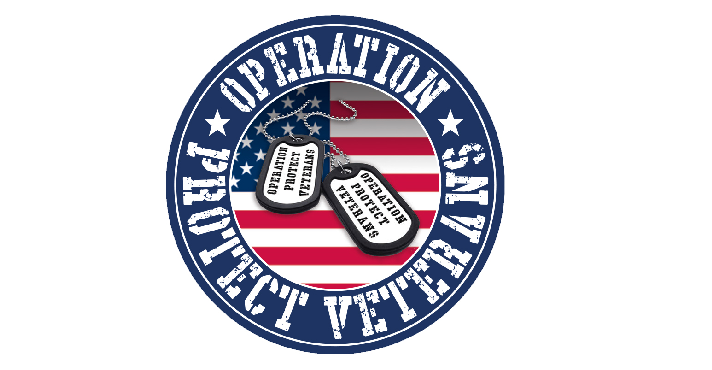In continuation of Operation Protect Veterans, the U.S. Postal Inspection Service and AARP are letting Veterans know about scams aimed specifically at military men and women. This article covers two schemes in which the scammer is offering something that should be free of charge, but can end up costing the victim everything.
The Job Offer Scam
Postal Inspectors investigate and pursue two basic types of criminals: those who take something out of the mail, and those who put something illegal into the mail. Similarly, most mail scams fall into one of two categories. Either the scammer is asking the victim for something (such as the fake charity scam we covered in our last article), or the scammer is offering to give the victim something of value (for a small fee, of course). One of the most prolific and damaging of these schemes is the “job offer scam.”
Complaints about job opportunity fraud are on the rise. According to the Federal Trade Commission, the number of business and job opportunity complaints from former and active military members nearly doubled between 2016 and 2017. Veterans looking for work are especially vulnerable to hiring scams, and their activity and public profiles on legitimate job search sites can attract the attention of fake job recruiters and other con artists.
Unfortunately, some “recruiters” may only be interested in acquiring your hard-earned money or personal information. Some red flags to look for: If the recruiter asks for an upfront fee to cover training and equipment costs, and wants it sent via wire transfer, you should be very cautious. Phony recruiters will also quickly offer a reasonable starting salary and work from home benefits, and all before meeting you in person. The recruiter may even send links to real companies to appear more convincing.
Always verify the legitimacy of any email from a corporate recruiter, just as you would from any person you have never met who is asking you to send money. Contact the company directly anytime you are asked to send money, even if you receive the offer through a well-known job site. Recruiting sites are working to strengthen their vetting process to prevent scammers from exploiting their platforms. But in the end, it is up to you to be vigilant and cautious to avoid being scammed.
Also, guard your Social Security number and credit card information. Don’t send money to someone who claims that fees and costs upfront are a normal part of the process. List your resume on job sites that allow only verified recruiters to view them. Agree to a background check only after you have met with a recruiter or prospective employer at their company location during regular work hours. Further, before responding to an ad or job-related email, look for spelling errors, an email address that does not feature the company’s name, and area or zip code inconsistencies—all signs of a possible scam.
Dynesha Montgomery is a Veteran transition specialist at Hire Heroes US, a job board for Veterans. Her advice for jobseekers is to have realistic expectations about the job seeking process. “Statistics show that the average time it takes for someone to secure employment is seven months. When desperate times call for desperate measures, it’s easy to be fooled into applying for a scam job.”
Montgomery warns former military members, especially transitioning Veterans, to watch out for three common job scams:
- Spoof (fake) website: Scammers go to great lengths to create a convincing front, even cloning entire websites of legitimate companies they know their targets will trust. While these fake sites may look real, they are only a tool for acquiring your personal information (Social Security number, passwords, bank account, credit cards, PayPal, birth date, etc.). Pay close attention to the URL or web address.
- Suspicious email address: The employer’s name should be listed in the email that was used to contact you. For example, if you receive a response to your application from Lisa Smith at Company X, you can reasonably expect the originating email address/domain name to be something like LSmith@CompanyX.com. Be cautious of anyone using a personal email address like gmail.com, yahoo.com, hotmail.com, etc.
- Unusual interview platforms: A typical job seeker might receive a legitimate looking email with explicit instructions to download an application and chat online. The interview quickly turns into a job offer, and the applicant is asked to provide detailed personal information, thus opening themselves up to identify theft.
Montgomery recommends doing a little research of your own by typing in the domain name of a recruiter’s email. Services like GoDaddy and WHOIS can help you learn more about the owner of the domain, website registration details, and contact information, unless the domain is registered as private. In addition, the Better Business Bureau (BBB) is always a great resource to help you find trustworthy businesses.
Military records scam
In another popular scheme, scammers attempt to charge Veterans for access to their service records or government forms. Veterans who are transitioning back to civilian life will need to request a copy of their records in order to access certain benefits provided to them. The first copy of a Veteran’s C-file in order to make a claim for benefits is free. Basic military personnel and health record information is also free to Veterans, next-of-kin, and authorized representatives from VA. Veterans also will not be charged a fee when requesting disability compensation and Vocational Rehabilitation records. The duplication fee is waived for the first complete set of records. (38 CFR § 1.577(g))
It should be noted, however, that after 62 years following discharge from the military, the Department of Defense typically transfers a Veteran’s records to the National Archives. For a first-time request for records for the purpose of obtaining benefits, there is no charge. Requests made for other purposes (for example, to retrieve information regarding military assignments, awards received, the names of other soldiers, and details of heroism during battle) may result in the payment of a fee. The National Archives is authorized to collect fees for copies of archival records, usually to offset copying costs (44 USC 2116c and 44 USC 2307).
In addition to the first copy of Veteran’s medical records, their discharge paperwork, including DD-214s and other forms, are also available at no cost through their state’s Veterans Affairs Agency, county Veterans service offices, and accredited Veterans service organizations. According to the director of the Michigan Veterans Affairs agency, Jeff Barnes, “These records are earned through military service, and it is unethical to ask for payment to obtain a DD-214.”
Yet, though the VA and Veteran service organizations have repeatedly warned Veterans and their families, unscrupulous businesses continue to charge them fees to obtain copies of their (free) military service and discharge records. Some websites charge $90 to $150 to obtain copies of DD-214s and other free military records through their “expedited” service, but Veterans Affairs agencies in most states often can provide the requested paperwork within a day or within hours for military funeral honors. All states have benefits counselors where Veterans can receive free assistance.
Veterans who encounter companies charging fees for their discharge records or other military paperwork are encouraged to report it to their state’s Veterans Affairs agency. Also, if you or someone you know has encountered such an offer (or has received a job offer that you suspect is a scam), you can join the fight against fraud by sharing your experience at the Fraud Watch Network (877-908-3360).
About the author: Inspector Carroll Harris has over 27 years of government service with 14 years as a federal agent. Harris joined the United States Marine Corps in 1990 where he has served over 10 years of active duty to include overseas combat deployment. He actively continues his military service in the Marine Corps Reserve as a Lieutenant Colonel at Quantico, VA.
About the U.S. Postal Inspection Service: The United States Postal Inspection Service is the law enforcement arm of the U.S. Postal Service (USPS) and the oldest federal law enforcement organization, tracing its roots to Benjamin Franklin. As one of the largest employers of Veterans, USPS and the Inspection Service take personally any attack on our Veterans. Learn more about the Inspection Service on Facebook, Twitter and at postalinspectors.uspis.gov.
Topics in this story
More Stories
Soldiers' Angels volunteers provide compassion and dedication to service members, Veterans, caregivers and survivors.
Veterans are nearly three times more likely to own a franchise compared to non-Veterans.
The Social Security Administration is hoping to make applying for Supplemental Security Income (SSI) a whole lot easier, announcing it will start offering online, streamlined applications for some applicants.






